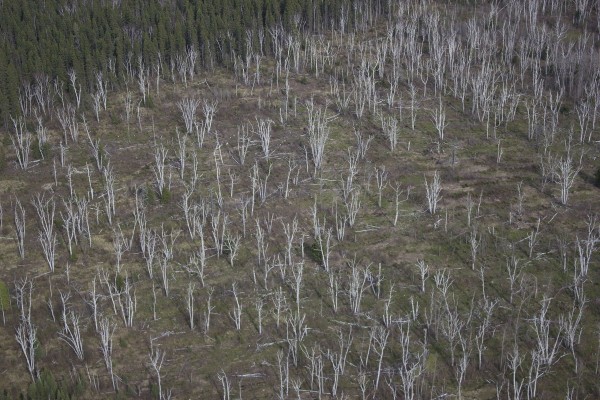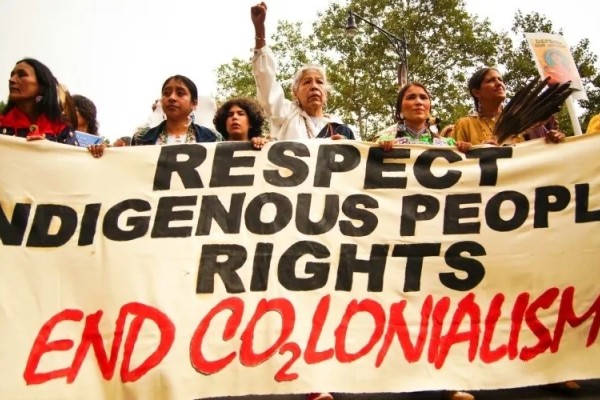Forestry Agreements
Don’t Ask—Don’t Tell
Climate reality and socio-economic reality are on a backward trajectory worldwide, and most culpable are the settler states formed out of the old British Empire. Only Canada, Australia, New Zealand, and the U.S. initially voted against the UN Declaration on the Rights of Indigenous Peoples. Indigenous people pay the price of climate change and its false solutions. And the Made-in-Canada “solutions” continue to be environmental and human travesties in every sense.
The world’s foremost climate scientist, Dr. James Hansen, makes it clear that the evidence from current satellite observations, paleoclimate and ocean core research point to a greater than previously assumed probability of reaching irreversible tipping points. He highlights clear correlations among four crucial factors: greenhouse gas concentrations in the atmosphere, temperature, ice sheet melting, and mass extinctions. He alerts us that continued “business-as-usual” will lead irreversibly to the permanent end of all life on this planet.
In North America and in Europe, this utterly urgent information is rarely if ever acknowledged within governments, the economic elite, academia, or within the major human rights/social justice and environmental NGOs. For decades now, proposed solutions have been incremental, ineffectual, and deceptive. None of these top-down groups call for a complete and immediate phase out of coal and the tar sands or absolute caps on other mega-projects such as dams, steel-girded large buildings, or vehicles.
Current acts of Canadian greenwash and people-wash include three initiatives to protect forests and caribou. The Canadian Boreal Forest was signed by a number of large environmental NGOs and big logging companies, including the Canadian Parks and Wilderness Society, David Suzuki Foundation, ForestEthics, Greenpeace, the Nature Conservancy, the Forest Products Association of Canada. Similar agreements are the Ontario Far North Act, Bill 191, and the “landmark” British Columbia 50 percent solution endorsed by major scientists Bill McKibben, James Hansen, Bill Rees.
These agreements have much in common: they violate nationally and internationally recognized treaty rights by imposing vast protected areas over Indigenous homelands with no consultation or informed prior consent by the people who inhabit and know the land. Clayton Thomas-Muller, the tar sands campaign organizer for the Indigenous Environmental Network, refers to the continual “attempts to abolish any memory of our title to the land called Canada … The main principle is that communities should speak for themselves.”
Macdonald Stainsby of OilSandsTruth.org raises a question about whether these forestry agreements set up forest offsets to go alongside carbon offsets, a cap-and-trade device enriching logging companies while allowing expansion of logging in other unprotected areas such as the tar sands. While British Columbia purports to protect its 50 percent of its forests, a federal review panel is assessing a pipeline that would traverse the territories of fifty indigenous peoples in British Columbia and Alberta. Simultaneously, to quote Roger Anis, a “modern-day gold rush has been unleashed in the northeast of British Columbia for the extraction of natural gas from rock, shale and coal bed formations.” Don’t ask, don’t tell.
It is the very people left out of these forestry policies that have understood and acted upon the vast complexity of climate change and its human context. The People’s Agreement on Climate Change and the Rights of Mother Earth (Cochabamba) addresses capitalism, the failed nation state system and the requirement of urgent “decisive, collective action to transform structures and systems that cause climate change and other threats to Mother Earth…”
This article appeared in the November/December 2010 issue of Canadian Dimension (The New Feminism).










